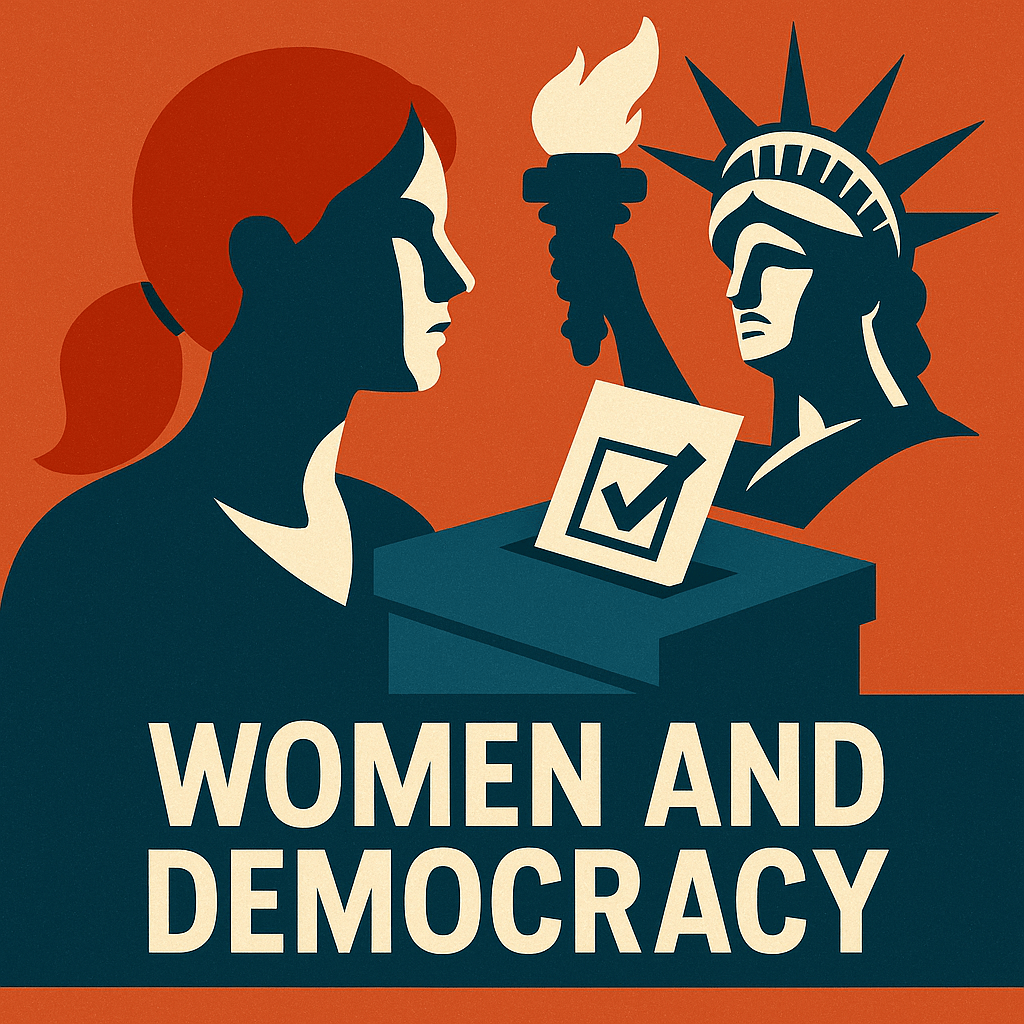When you picture democracy, you might imagine ballot boxes, campaign rallies, or town-hall debates. But at its core, democracy is a method for protecting human potential—a civic invitation for every citizen to step forward, speak up, and shape the future. That invitation is especially precious to women, whose voices have so often been hushed in other forms of governance. Through the framework of Wisdom Accelerators—principles that harmonize science, nature, and spiritual insight—we can see why defending democratic institutions isn’t just political housekeeping; it’s a moral imperative tied directly to women’s rights and humanity flourishing.
1 Democracy as a Safety Valve for Progress
Women’s advancement rarely comes as a gift from above; it comes through legal reforms, cultural shifts, and public accountability, processes that thrive only when power can be peacefully challenged. Democracies offer:
- Transparent lawmaking that exposes discriminatory statutes to public scrutiny
- Independent courts where gender-based grievances can be heard on their merits
- Regular elections that let marginalized groups turn social momentum into policy
In authoritarian systems, even enlightened decrees can be rescinded overnight. Democracy’s checks and balances keep the doors open for continual correction.
2 The Wisdom Accelerator of Understanding: Listening to Half the Sky
One of the first “accelerators” in Jack Miller’s model is Understanding—the commitment to integrate diverse perspectives into a coherent whole. A polity that sidelines women leaves half of its experiential data on the cutting room floor. Imagine trying to solve climate change, educational reform, or healthcare policy while muting every second expert. Democracies institutionalize listening through hearings, public comment periods, and civil-society watchdogs, turning understanding into law.
3 The Accelerator of Courage: From Suffrage to #MeToo
Progress also demands Courage—the inner fire to speak truth when convenient silence would be safer. Think of:
- The suffragists who endured ridicule to win the 19th Amendment
- Rosa Parks’ single seat of resistance, echoing through the Civil Rights Act
- Modern whistle-blowers exposing workplace harassment, galvanizing the #MeToo era
Democratic protections—free press, assembly rights, anti-retaliation laws—grant courageous individuals a fighting chance to change systems without paying with their lives.
4 Democracy’s Spiritual Dividend: The Innate Worth of the Individual
The Urantia Book teaches that true progress blends material evolution with spiritual insight. A society that recognizes each person—male or female—as a child of a loving universe Father is morally compelled to honor that person’s agency. Democracy converts this spiritual ideal into civic architecture: one person, one vote; equal protection; due process. Where these safeguards weaken, the divine dignity of women is the first casualty.
5 Threats on the Horizon—and necessary responses
| Erosion of Democracy | Impact on Women | Relevant Factors | Actionable Habits |
|---|---|---|---|
| Voter suppression laws | Disproportionate barriers for caregivers and low-income women | Knowledge (distinguish fact from spin) | Fact-check new restrictions; support nonpartisan registration drives |
| Digital disinformation | Gender-targeted propaganda undermines trust in elections | Counsel (collaborative problem-solving) | Form study circles that analyze news collectively |
| Concentrated media ownership | Silences minority & women’s perspectives | Worship (value higher ideals over raw power) | Support independent, women-led journalism outlets |
These habits aren’t partisan marching orders; they are civic disciplines that any worldview can embrace to keep democracy resilient.
6 A Call to Active Guardianship
Protecting democracy is not the work of one election cycle; it’s an ongoing project of vigilance, empathy, and principled debate. Each time women earn a new right—property ownership, legal personhood, reproductive choice—it is democracy’s scaffolding that holds the gain in place long enough for culture to adjust. Lose the scaffolding, and progress slides back into the shadows.
Wisdom Accelerators remind us that knowledge must fuse with courage, understanding with compassion, and personal spirituality with public responsibility. When these qualities animate citizens—women and men alike—democracy ceases to be a fragile experiment and becomes a living testament to humanity’s better angels.
Long-standing patterns in sacred literature set the stage for women’s exclusion long before modern politics arrived. Early rabbinic rulings codified a worldview in which women were valued primarily for lineage and modesty, not for scholarship or speech. The daily birkat ha-shachar thanked God “who has not made me a woman,” while synagogue practice prohibited women from reading Torah or testifying in court. Because these strictures were wrapped in divine authority, later generations took them not as cultural artifacts but as heaven-stamped mandates, exporting a theology of hush that followed Judaism’s daughters into Christianity and Islam.
Centuries later, Pauline silencing texts—especially 1 Cor 14 and the Pastoral letter of 1 Timothy—re-anchored that hush inside the newborn church. Paul was a powerhouse missionary, yet not one of the twelve Jesus personally chose; his letters carried enormous weight, and two verses, lifted from their cultural moment, became louder than every story of female partnership in Acts. By the fourth century, councils quoted “I do not permit a woman to teach” more often than they cited Mary Magdalene’s Easter proclamation. The result was clerical orders closed to women, theological education withheld, and a norm that framed spiritual authority as intrinsically male.
The pattern did not stop at the church door. Classical Islamic jurisprudence began with Qur’anic verses that place men and women side-by-side in piety, yet medieval fiqh solidified male guardianship—qiwāma—and limited female testimony and inheritance. Once again, patriarchal customs gained scriptural casing, shrinking women’s legal and religious agency. From synagogue mechitzas to church pulpits to Sharia courts, the common denominator is clear: when male-dominated interpretations fossilize, women’s gifts are treated as optional extras rather than indispensable pillars of the spiritual enterprise.
So cherish the ballot. Guard the free press. Teach your daughters—and sons—that every right carried on the wind of liberty began as one brave voice insisting, “I, too, count.”

